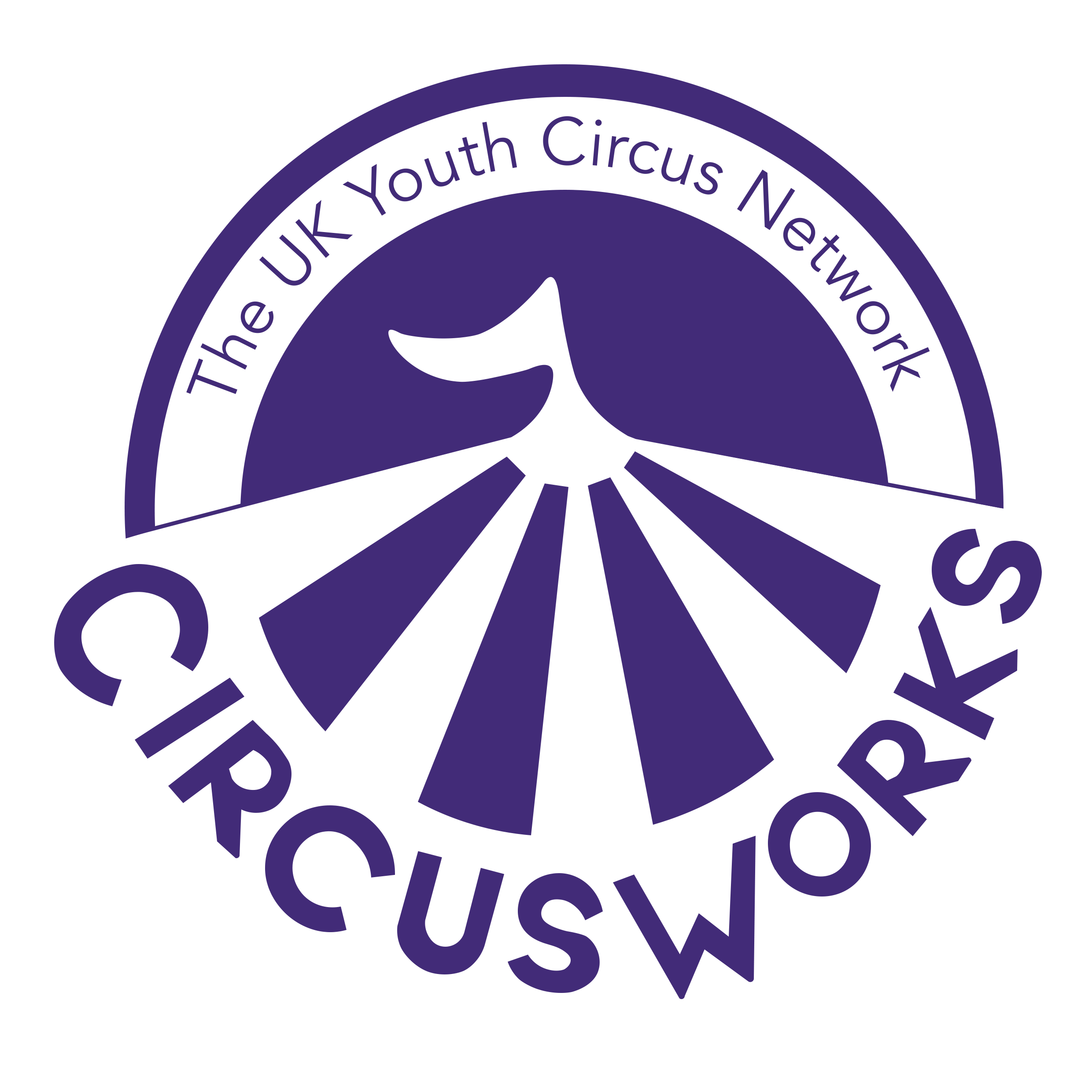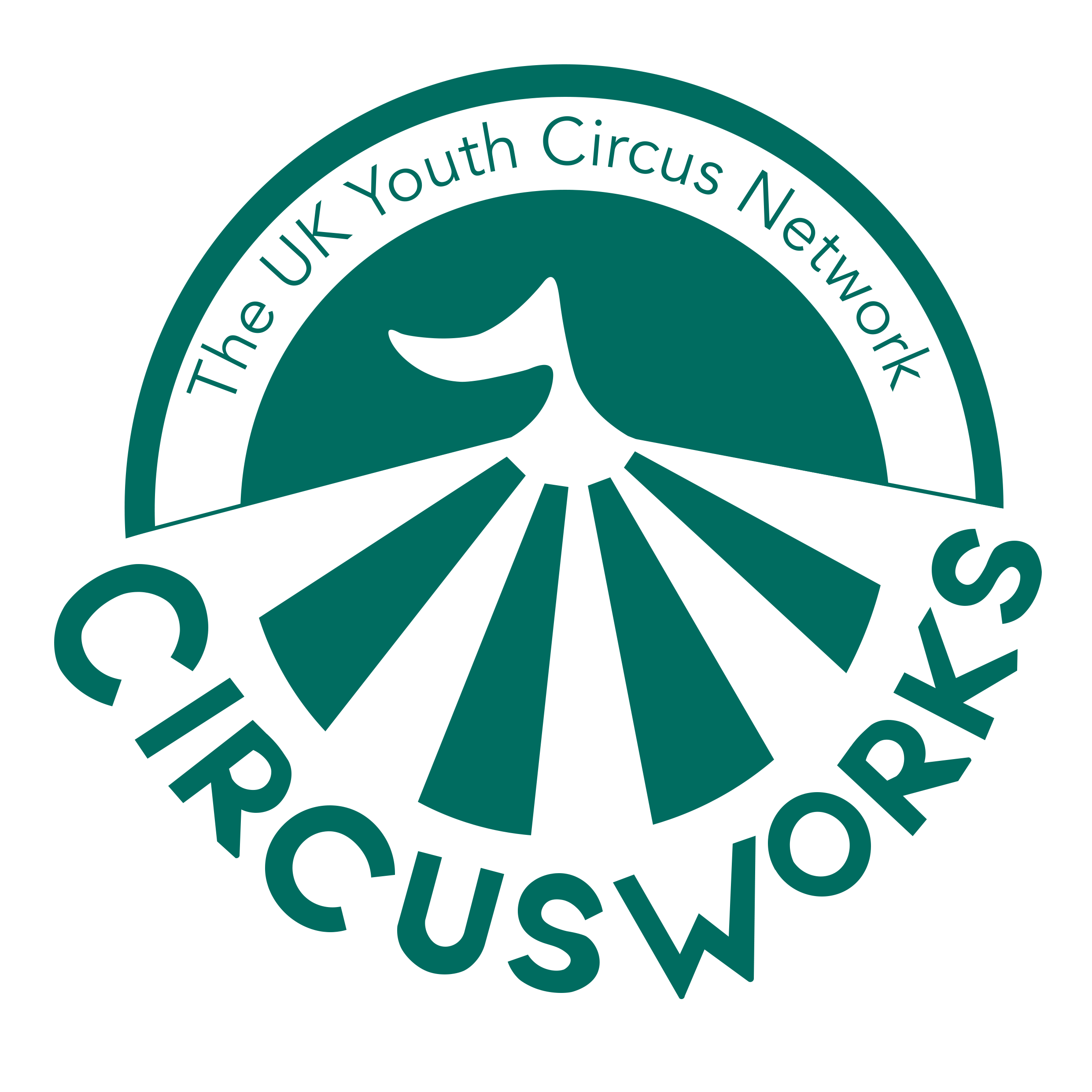



Since March 2020 we have produced 3 Impact Surveys, to monitor the effects of the Covid-19 crisis on youth circuses and the young people they teach.
This page contains our findings.

34 youth circuses responded to our first survey, in March 2020.
37 youth circuses responded to our second survey, in June 2020.
24 youth circuses responded to our third survey, in December 2020.
While our first survey was anonymous, surveys 2 and 3 were not: you can see a list of the youth circuses that took part in them at the bottom of this page (see ‘Thanks To’).
Initially, our first survey was designed to find out what impact Covid-19 restrictions were having on UK youth circuses, if they were receiving any support (financial or otherwise), and what needed to be done to mitigate long-term damage. As the pandemic wore on, we used the surveys to measure how the situation was changing for youth circuses, including:
The data we gathered from these surveys was used to shape the work that CircusWorks has been doing throughout the crisis, as well as to petition funding bodies for greater support for youth circuses.
The impact of the first UK lockdown on youth circuses was severe. Youth circuses were already vulnerable: our 2019 national survey showed that although the sector was growing, it was predominantly underfunded, and staffed by freelancers and volunteers. A lot of smaller youth circuses had no experience applying for funding, and had very limited online capabilities: this meant that when in-person activities were restricted, many organisations lost all of their income. The majority of UK youth circuses are small business that do not employ staff – relying on self-employed freelancers – or own property, and initial government support plans did little to support businesses of this kind.
In our most recent survey – published in December 2020 – our data showed that 38% of youth circuses have not received any financial support since the start of the crisis.
Around half of youth circuses surveyed had received some form of support from the UK Government. Youth circuses that applied for Arts Council funding (from Arts Council England, Arts Council of Wales, Creative Scotland, or Arts Council of Northern Ireland) had a high success rate: only 1 youth circus of those that applied had their application rejected. Most youth circuses surveyed (63%) did not apply for funding from any arts council however, despite the devestating financial impact of Covid-19. There are many possible reasons for this: feedback CircusWorks has received from youth circuses in the past shows that many are intimidated by Arts Council application processes, do not believe they have the skills required to apply, or simply do not realise that applying for this funding is an option for their organisation. Throughout the pandemic, CircusWorks has been offering one-on-one support and advice to youth circuses thinking of applying for funding, as well as petitioning funding bodies for greater support for the sector.
Youth circuses have been working hard to continue engaging young people throughout this crisis. Many are seriously concerned about the effect the crisis is having on their young people, however, and describe engaging young people online (via Zoom classes, etc.) as a struggle. Reoccuring issues included:
Additionally, for many young people, youth circus is their favourite thing to do. It is a creative outlet, and without it they lose a form of expression, a place of personal development, and with that a sense of pride.
We believe that around 80% of youth circus staff are self-employed. This led to significant issues during the Covid-19 crisis, as youth circuses were not able to offer their workers any kind of security (e.g. work, or payment through the furlough scheme), and therefore witnessed workers with unique skillsets move away for work, find other employment, or struggle to support themselves and their families.
Long-term, we are still seeing the effects of this, as youth circuses struggle to reopen with less staff. Our 2019 national survey showed that there was already a lack of suitably qualified circus teachers in the UK, prior to the Covid crisis.
Online classes, YouTube tutorials, school workshops for the children of key workers, and distributing circus-at-home kits are some of the activities youth circuses have been involved in during lockdown. However our 3rd Impact Survey showed that, while 58% of youth circuses were engaging in some form of remote activity, only 33% of those youth circuses were earning any form of income from those activities – and that income was often less than they would earn from in-person classes.
In our first impact survey, in March 2020, only 19% of youth circuses rated their chances of survival as greater than 50%. By our third impact survey, in December 2020, that number had risen to 63%.
88% of youth circuses were still reporting that their income had shrunk by more than 50% however, and 33% reported that all of their income had disappeared. Meanwhile, 38% of youth circuses have received no financial support since the beginning of this crisis.
The majority of youth circuses (88%) reopened in some capacity in the period between June and November 2020. We do not currently have figures on how many have reopened in 2021 – we will be running a fourth impact survey in the next few months, to get a clearer picture of how youth circuses are recovering.
Finally, many youth circuses are concerned about the long-term reprecussions of this crisis on their staff and young people. Staff have had to move away or take other work due to economic pressures, and may not be able to return to teach.

Published 26th March 2020
34 Participants
Compiled and Edited by Leah Carroll

Published 10th June 2020
37 Participants
Compiled and Edited by Leah Carroll


Published 18th December 2020
24 Participants
Compiled and Edited by Leah Carroll

Membership rates are competitive and offer exclusive benefits to organisations and individuals.
Already a member? Log in to your Member Dashboard